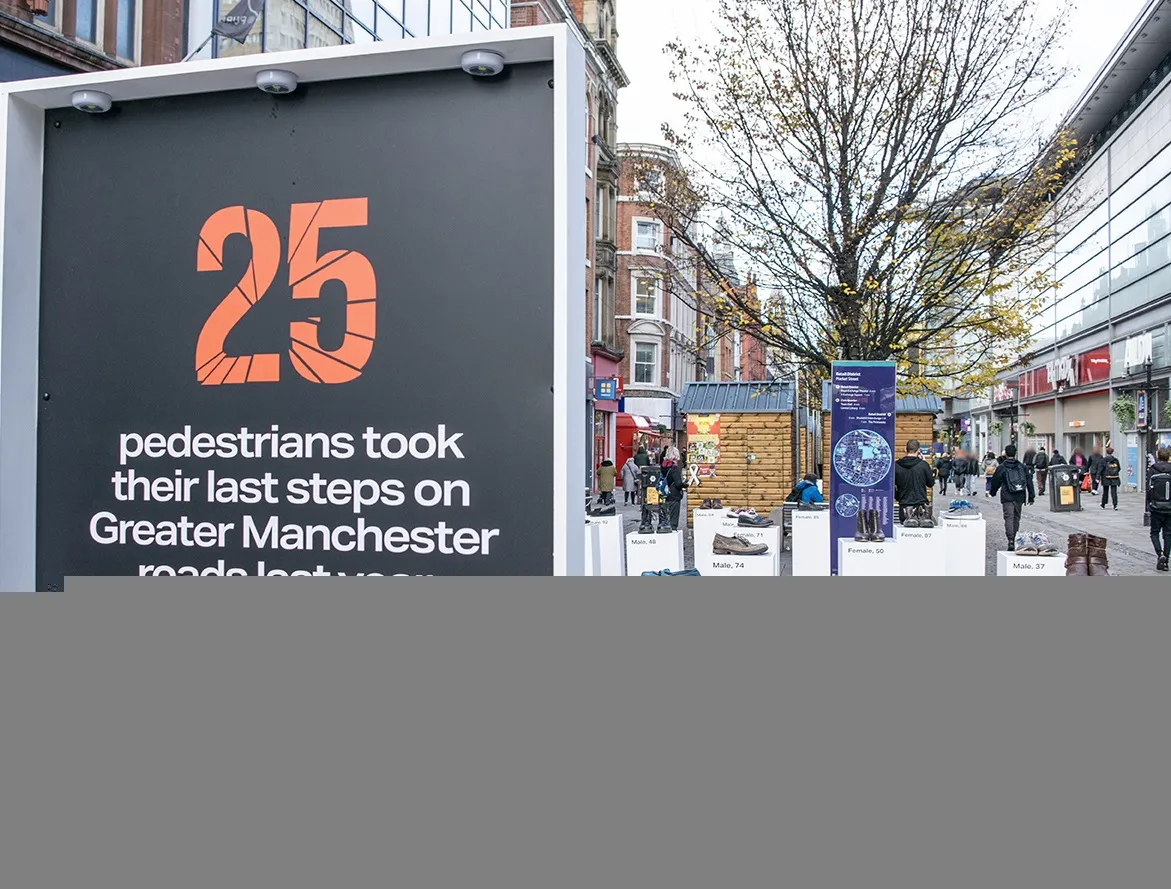A study to mark the launch of Brake’s new Roads to Justice Campaign shows there is huge support for strengthening both the charges and sentences faced by criminal drivers.
Ninety-one per cent of people questioned agreed that if someone causes a fatal crash when they get behind the wheel after drinking or taking drugs, they should be charged with manslaughter. That carries a possible life sentence. At present people can either be charged with causing death by dangerous driving or causing death by careless
July 11, 2016
Read time: 3 mins
A study to mark the launch of 4235 Brake’s new Roads to Justice Campaign shows there is huge support for strengthening both the charges and sentences faced by criminal drivers.
Ninety-one per cent of people questioned agreed that if someone causes a fatal crash when they get behind the wheel after drinking or taking drugs, they should be charged with manslaughter. That carries a possible life sentence. At present people can either be charged with causing death by dangerous driving or causing death by careless driving when under the influence of drink or drugs. Sentences for those charges range between 26 weeks and 14 years, though sentences at the higher end of the range are rarely handed out.
The study also reveals most people back much tougher sentences for all criminal killer drivers. Two thirds of people (66 per cent) questioned think those convicted should be jailed for at least ten years. About half of people asked said the sentence for killing someone in a crash should be at least 15 years and one in five (19.8 per cent) think drivers who kill should be jailed for life.
At present almost half of drivers convicted of killing are not jailed at all. The average prison sentence for a driver who has killed someone is less than four years.
This new campaign is being backed by a number of recently bereaved families who feel they have not had justice for their loved ones. Dawn and Ian Brown-Lartey lost their son, 25 year old Joseph when a speeding driver ran a red light at more than 80 miles an hour. Today for the very first time, the car Joseph was driving, which was cut in two by the collision, is being put on public display (with support and help from Greater Manchester Police) and brought to the House of Commons.
Brake is now calling on the government to immediately review guidelines for both charging and sentencing criminal drivers.
Joseph’s parents, Ian and Dawn Brown-Lartey, said: “Hearing that his killer will serve half of a six-year sentence was a further slap in the face to us and our family.”
Brake's survey also revealed overwhelming support for never using charges that describe driving as ‘careless’ in cases where bad driving has resulted in death or injury. Eighty-four per cent of people questioned agreed a charge of dangerous driving should always be brought.
In 2014 176 people were charged with ‘causing death by dangerous driving’ and 205 were charged with ‘causing death by careless driving’. Brakes argue that all careless driving is dangerous, as if you are not giving your full attention to the road and the task, you are more likely to crash and that crash could be fatal.
Ninety-one per cent of people questioned agreed that if someone causes a fatal crash when they get behind the wheel after drinking or taking drugs, they should be charged with manslaughter. That carries a possible life sentence. At present people can either be charged with causing death by dangerous driving or causing death by careless driving when under the influence of drink or drugs. Sentences for those charges range between 26 weeks and 14 years, though sentences at the higher end of the range are rarely handed out.
The study also reveals most people back much tougher sentences for all criminal killer drivers. Two thirds of people (66 per cent) questioned think those convicted should be jailed for at least ten years. About half of people asked said the sentence for killing someone in a crash should be at least 15 years and one in five (19.8 per cent) think drivers who kill should be jailed for life.
At present almost half of drivers convicted of killing are not jailed at all. The average prison sentence for a driver who has killed someone is less than four years.
This new campaign is being backed by a number of recently bereaved families who feel they have not had justice for their loved ones. Dawn and Ian Brown-Lartey lost their son, 25 year old Joseph when a speeding driver ran a red light at more than 80 miles an hour. Today for the very first time, the car Joseph was driving, which was cut in two by the collision, is being put on public display (with support and help from Greater Manchester Police) and brought to the House of Commons.
Brake is now calling on the government to immediately review guidelines for both charging and sentencing criminal drivers.
Joseph’s parents, Ian and Dawn Brown-Lartey, said: “Hearing that his killer will serve half of a six-year sentence was a further slap in the face to us and our family.”
Brake's survey also revealed overwhelming support for never using charges that describe driving as ‘careless’ in cases where bad driving has resulted in death or injury. Eighty-four per cent of people questioned agreed a charge of dangerous driving should always be brought.
In 2014 176 people were charged with ‘causing death by dangerous driving’ and 205 were charged with ‘causing death by careless driving’. Brakes argue that all careless driving is dangerous, as if you are not giving your full attention to the road and the task, you are more likely to crash and that crash could be fatal.








